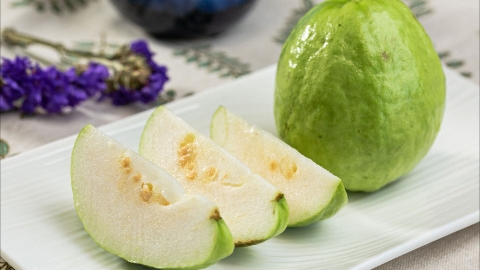What are the contraindications for eating guava?
Generally speaking, when consuming guava, a common fruit, certain dietary precautions should be considered. These include: individuals with weak gastrointestinal function should consume it cautiously; diabetic patients should control their intake; eating large amounts on an empty stomach should be avoided; excessive consumption with high-fiber foods is not recommended; and those with dental issues should pay attention to the method of consumption. Detailed explanations are as follows:

1. Individuals with weak gastrointestinal function should consume cautiously: Guava is rich in dietary fiber, and its skin is relatively tough. Excessive consumption by those with weak gastrointestinal function may increase the digestive burden, potentially causing discomfort such as bloating, abdominal pain, and indigestion, thus affecting normal gastrointestinal motility and digestion.
2. Diabetic patients should control intake: Guava contains a certain amount of sugar, although with a relatively low glycemic index. Diabetic patients still need to strictly control the amount consumed. Eating too much at once may cause short-term fluctuations in blood sugar levels, which is detrimental to maintaining stable blood sugar levels. Consumption should be adjusted according to individual blood sugar conditions.
3. Avoid consuming large amounts on an empty stomach: In a fasting state, the stomach secretes more gastric acid. The dietary fiber and organic acids in guava may irritate the gastric mucosa, causing gastrointestinal discomfort such as acid reflux and stomach pain. Especially for individuals with sensitive gastrointestinal systems, eating guava on an empty stomach can intensify gastric irritation. It is recommended to consume moderate amounts between meals.
4. Not recommended to excessively consume together with other high-fiber foods: Guava itself contains high levels of dietary fiber. Consuming it in large quantities along with other high-fiber foods may lead to excessive fiber intake, which could cause rapid intestinal motility or blockage, resulting in bloating, constipation, or diarrhea, thus affecting normal intestinal metabolism.
5. Those with dental problems should pay attention to how they eat: Guava skin is relatively hard, and some varieties have a crisp flesh texture. People with poor dental conditions, periodontitis, or loose teeth may experience enamel wear or increased dental discomfort if they bite into it directly. It is recommended to peel the fruit and cut it into small pieces before consumption or to drink guava juice, thereby reducing irritation to the teeth.
When consuming guava in daily life, it is advisable to adjust the quantity and method of consumption based on individual health conditions, focus on balanced dietary combinations, avoid physical discomfort caused by improper consumption, and better utilize the nutritional value of the fruit.








